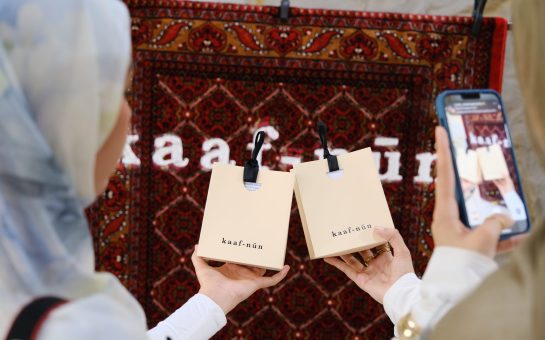New data has revealed that 84% of female runners have experienced street harassment in London compared to 50% of men.
A study from St Mary’s University, Twickenham has revealed that male participants felt much safer running in London than women with 45% stating they felt ‘very safe’ compared to 18% of women.
The research took around four months to undertake and surveyed 121 runners across 26 London boroughs with interviews with nine of the participants.
Lead researcher on the project Eva Brockschmidt said: “Having been a female runner in London, unfortunately it is an issue that I have encountered myself, but it felt like it wasn’t something that was really spoken about much.
“I was quite saddened by the results and also quite angered by them, especially receiving personal accounts from people and how it affected them, but surprised? No, not really.”
The data also found that while 0% of men surveyed had been flashed or groped compared to 18% of women, and only 8% of men had been followed, compared to 31% of women.
The personal accounts revealed that the frequency with which female runners experienced harassment far outnumbered that of men.
One female respondent said: “I’ve experienced some kind of unwanted comment or look nearly every time I’ve been running in London over the past 8 years.”
Another added: “I experience some form of unwanted attention on about 80% of runs.”
On the other hand, a male respondent said: “I’ve experienced it maybe two or three times maximum of over hundreds and hundreds of runs in London.”
Not only was the frequency different, but the way respondents spoke around harassment also varied according to Brockschmidt.
She said: “Women always explicitly refer to men or guys, it is very gender specific language. Whereas with men, the language was more gender neutral.”
Furthermore, male attitude to harassment was also different with 10% of men having been catcalled and 77% of women.
Brockschmidt noted that when men were catcalled by women, the effect was often quite different.
She explained that women would feel degraded or scared whereas men would find it funny, which she argued was indictive of a wider cultural issue.
She added: “I definitely don’t think it is specific to running, there are a lot of women who report similar issues in cycling and swimming. You have to look at the broader social and cultural context and the rape culture that certainly affects women wherever they go and whatever they do.”
The report calls for fundamental cultural change, “moving beyond neoliberalist attitudes to characterising street harassment as an individual issue”, and suggests ways in which local governments and members of the public can help.
Some of these suggestions that Brockschmidt also mentioned include: public awareness campaigns, bystander training, councils’ providing safe spaces for people to exercise, ensuring adequate lighting and criminalisation of some street harassment as in other parts of Europe.
Brockschmidt added: “While it’s difficult to police, criminalisation would signal to people that harassment isn’t a trivial thing, it is not a compliment.
“Unfortunately, it often seems that harm to women from ethnic minorities is given less attention by both the police and the media. For instance, I am particularly thinking about the police response to the murders of Bibaa Henry and Nicole Smallman.
“Our participants were not as diverse as I would have liked and I think there is a real case for investigating abuse for example on minority runners as we know that misogyny and racism often intersect.”
Brockschmidt said she would be interested in collaborating with another researcher further down the line to explore this and how harassment varies from borough to borough.
For now though, she argued this data sheds light on an important issue.
She said: “50% of our population are female. Everyone should have a right to exercise in peace and feel safe on the streets of London. It is not something that women should just put up with.”




